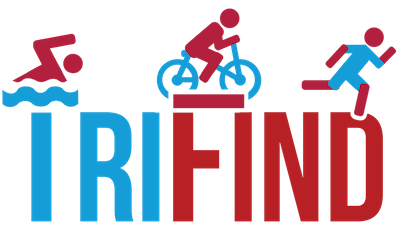Why Are You Really Training For That Triathlon?
Why Are You REALLY Training For That Triathlon?
The sport of triathlon is one of the fastest growing participant sports in the U.S., with over 1.4 million triathletes participating in two or more triathlons in 2011 (according to USA Triathlon). And as football season winds down, couch potatoes everywhere will be answering that dare or office bet to check off their first triathlon. Here are some things to think about before you start madly training pell-mell for that hilly century bike ride or half-iron distance triathlon that your brother-in-law somehow talked you into.
First, are your race schedule and goals reasonable for your current level of fitness, your experience, and your support network? Although some budding amateur triathletes can jump right into an Olympic or even longer triathlon for their first race, most “adult onset” triathlete newbies are best served with first completing a sprint triathlon. That “short and easy” 500 meter swim in your local reservoir takes on an entire new meaning when the water is cold, murky, and choppy from 300 of your new friends madly thrashing about…
Secondly, sit down and design a basic long-range training plan (it doesn’t have to be detailed at this point – number of hours per week in each sport will suffice). If you aren’t sure what it will take to achieve your race goals, there are a number of resources available, including triathlon coaches, other experienced triathletes, or self-education with books, magazines, and online sources. Once you’ve sketched out a rough training plan, then take a hard, realistic look at any potential conflicts with your "civilian" life. Will the necessary training, logistics, and financial requirements be in harmony with your family and job, and allow you the necessary sleep and recovery time? Visit any popular triathlon forum and you will soon encounter many tales of spousal friction (or worse) and work problems caused by triathletes who have not balanced their triathlon hobby with external obligations and relationships.
Training for a triathlon is not only physically demanding, but takes careful time management. You need to ensure that your training plan is properly structured so that you are not wasting valuable time with “garbage training” -- but instead maximizing your fitness gains with smart, focused work outs which address your weak areas. Here again, an experienced and qualified triathlon coach can be very valuable in ensuring that your training is done as efficiently as possible given your time constraints and athletic abilities.
Even experienced triathletes, at the beginning of their training season, need to take a fresh look at what their goals and real “motivations” are. I’ve seen too many experienced and very competitive age-group triathletes fall victim to overtraining injuries, burnout, and unhealthy lifestyle behaviors as a result of blindly “chasing the dream.” These triathletes are often racing and training far too hard as a result of pressure (mostly perceived) from sponsors, friends, and rivals. An even more insidious driving factor can be self-induced pressure from linking triathlon success, reputation, and sponsor “swag” to their own self-worth and identity.
Most coaches or triathletes who have several years of experience at the national or world class level know this type of amateur triathlete: One who has attained great success for a few years on the podium at Kona Ironman, or at the USAT National Championship. This success leads to a self-driven need to stay on top, with continued intense training and demands from their support network (regardless of competing and often increasing limitations from family, new jobs, etc.). As a result, the athlete descends into a spiral of over-training injuries, illnesses, burnout/depression, and adverse impacts to their family and career. This triathlete continues to unrealistically attempt to do it all – and in doing so, will usually not achieve their athletic goals, and sadly lose their love for the sport as well.
Although the above example is from the “front of the pack”, this burnout and overtraining happens at all levels of endurance sports! Ensure your motivation for this sport and your race is "pure" -- based on a love for what we all did as kids – swim, bike, and run -- and because the training will make you healthier and happier. If triathlon racing and training is not fun, and not leading to those outcomes -- you need to step back and review what you're really doing and why you're doing it.
A great book which discusses how your mindset, attitude, and “pure motivation” can truly be your best weapon for success is "Breakthrough Triathlon Training" by former #3 world-ranked champion pro triathlete Brad Kearns. I think you’ll find that if you take a holistic approach to triathlon, not only will you enrich your training and racing, but all facets of your everyday life. Identify why you are really training for that race this summer, hold on to that motivation, and happily achieve your goals!


